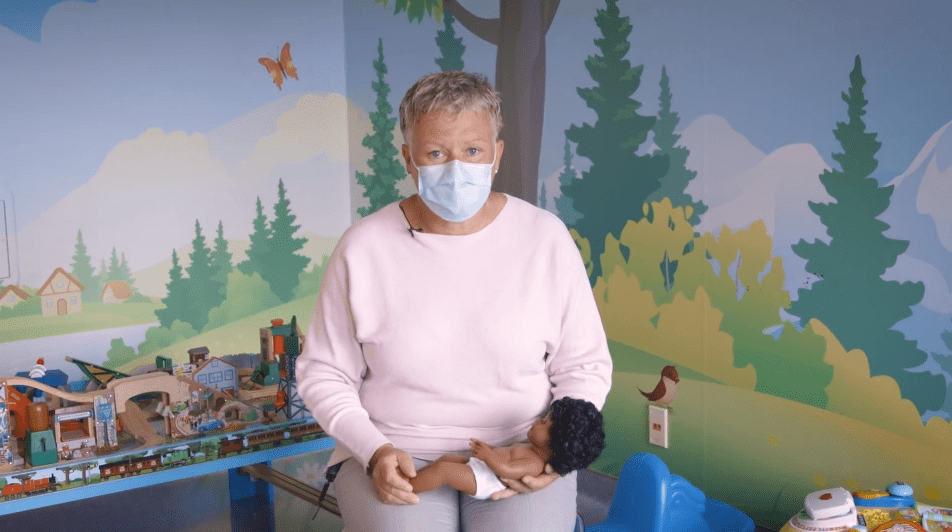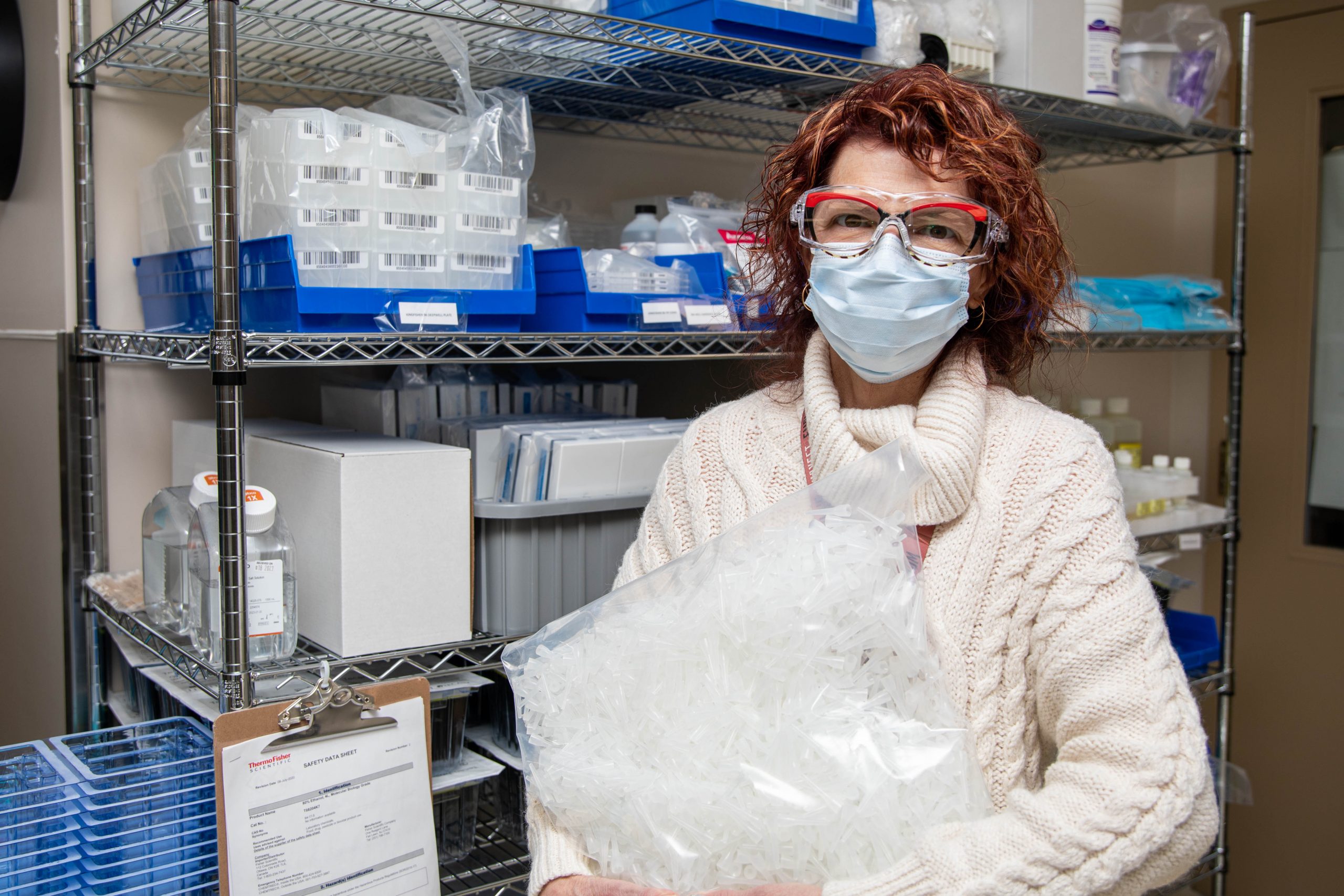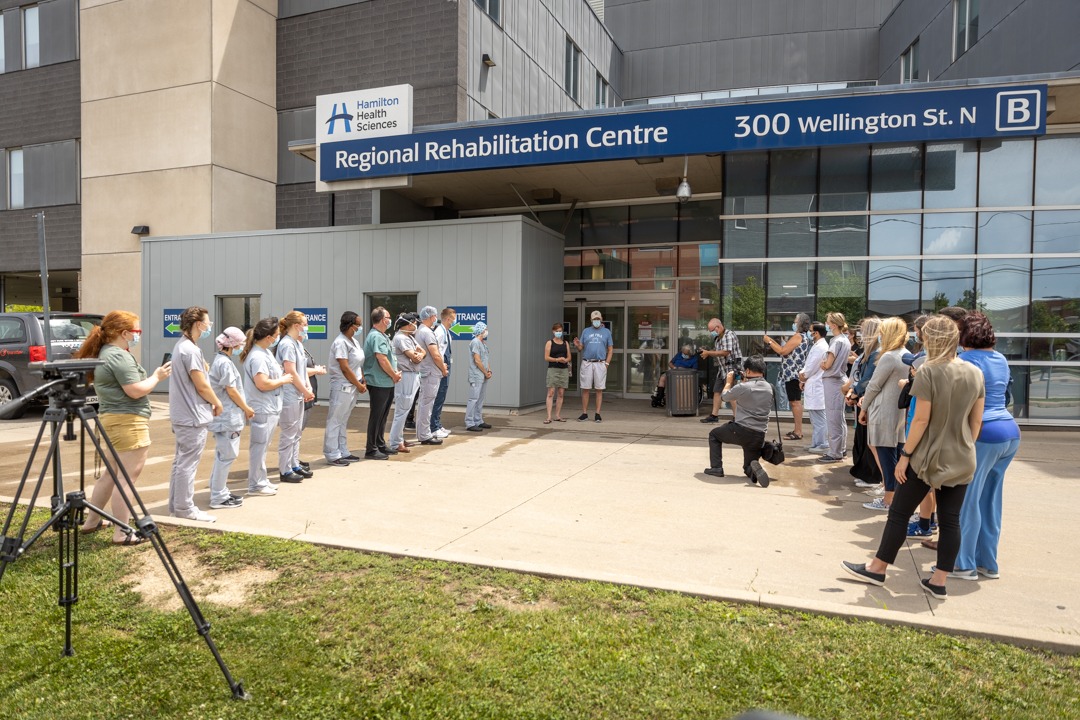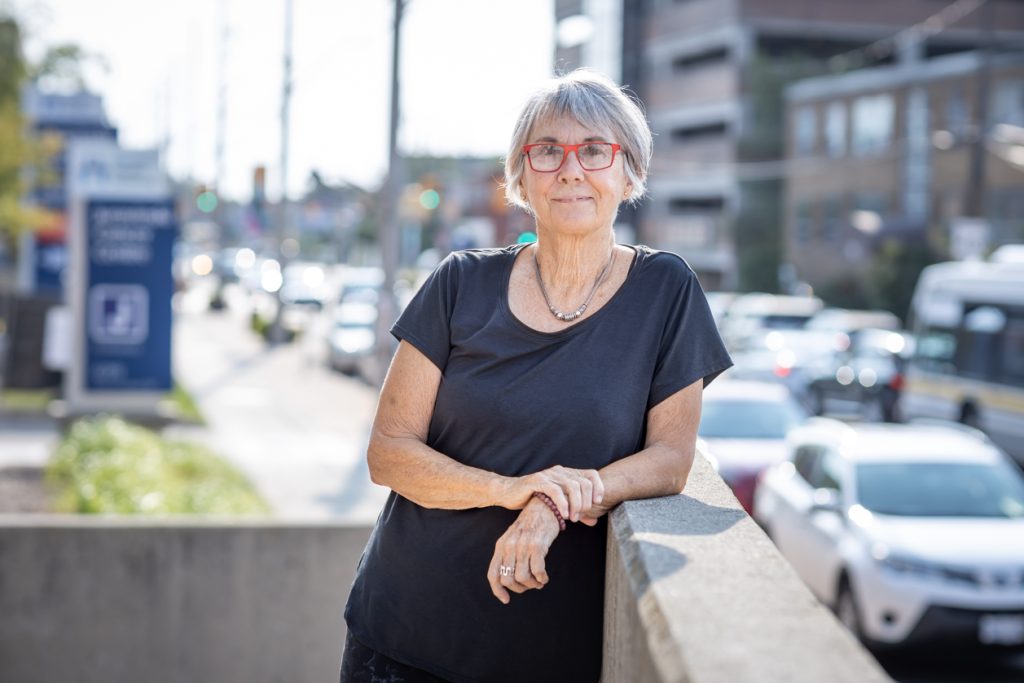
Extra shot of protection from COVID-19
World traveler Angie Lathrop isn’t letting a leukemia diagnosis or fear of COVID-19 stand in the way of her globetrotting. But she’s taking safety precautions, including being fully vaccinated for COVID and visiting Hamilton Health Sciences’ Evusheld clinic at Juravinski Hospital and Cancer Centre (JHCC) for an extra shot of protection.
“I definitely felt more comfortable travelling with the extra protection of Evusheld.” — Angie Lathrop, cancer patient
Evusheld is a drug that can help prevent people from getting sick from COVID. It’s available at JHCC to blood cancer patients whose treatments may have prevented COVID vaccines from providing adequate protection from the virus. Lathrop received her Evusheld injection in June, shortly after the clinic opened.
“I worked hard all my life so I could travel,” says Lathrop, 76, a retired school social worker. She was treated at JHCC for chronic lymphocytic leukemia, a kind of cancer where the bone marrow makes too many lymphocytes, a type of white blood cell.
So far this year, Lathrop has visited Chile and Turkey. “Nothing was going to stop me from travelling once countries opened up from pandemic lockdowns,” she says. “I’m 76-years-old and at some point I won’t be able to do this anymore.” Next up this year are trips to France and Ecuador.
“I definitely felt more comfortable travelling with the extra protection of Evusheld,” she says.
JHCC Evusheld clinic
The JHCC Evusheld clinic opened in June, shortly after Health Canada approved the drug’s use. Only certain cancer patients qualify and they must be referred by their doctor. Close to 100 patients have visited the clinic for shots so far.
“I’m finding that our patients are highly motivated to receive the shots because they want the extra protection.” — Jessica Byers, registered practical nurse
Most patients receiving Evusheld are stem cell transplant patients. Other eligible patients include those receiving CAR-T cell therapy, which is a way to get immune cells called T cells to fight cancer by changing them in a lab so they can find and destroy cancer cells.
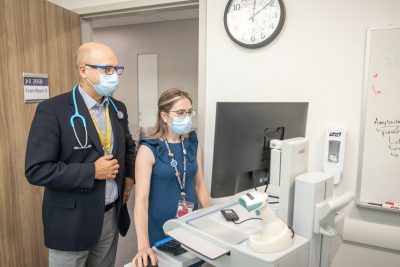
Dr. Tom Kouroukis and Registered practical nurse Jessica Byers in the Evusheld clinic
Evusheld is also recommended for patients taking the drug rituximab, which is used to treat blood cancers including non-Hodgkin’s lymphoma and chronic lymphocytic leukemia.
“Patients who are eligible for Evusheld are expected to have a poor response to COVID vaccines due to their treatments, even when fully vaccinated against COVID.” –Dr. Tom Kouroukis, hematologist
Evusheld is not a vaccine. It’s an injection, given as a shot to each side of the buttocks. Protection lasts at least six months. Evusheld isn’t meant to replace COVID vaccines and it doesn’t treat COVID if someone already has the active virus.
Why this group of patients?
For most healthy people, the body makes antibodies to fight infection. Blood cancer patients qualifying for Evusheld have received treatment that stops their bodies from creating antibodies to fight COVID, even after getting COVID shots.
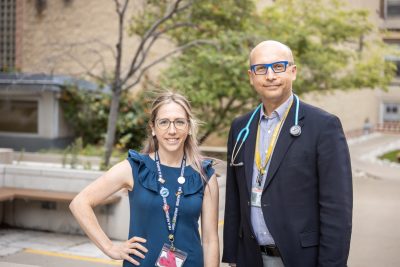
Registered practical nurse Jessica Byers and Dr. Tom Kouroukis
When these patients don’t have antibodies needed to recognize the virus that causes COVID, monoclonal antibodies – which are made in a laboratory – can be used instead. Evusheld provides monoclonal antibodies that attach themselves to the virus, stopping it from entering cells. This lowers the chance of getting sick from COVID.
“Patients who are eligible for Evusheld are expected to have a poor response to COVID vaccines due to their treatments, even when fully vaccinated against COVID,” says Dr. Tom Kouroukis, a JHCC hematologist who sits on the provincial working group for Evusheld.
For example, the drug rituximab — used to treat certain blood cancers — significantly impairs the patient’s immune response, while stem cell transplants temporarily wipe out immunity.
And with stem cell transplant patients, it can take months for them to rebuild immunity after a transplant. “These patients are particularly vulnerable to COVID during that time period,” says Kouroukis.
Welcomed by patients
The clinic runs two mornings a week and is staffed by registered practical nurse Jessica Byers. Patients are referred by their JHCC specialist and participation is voluntary.
“I’m finding that our patients are highly motivated to receive the shots because they want the extra protection,” says Byers. “As the world started opening up again over spring and summer, many were still self-isolating. Evusheld is really helping to alleviate some of their anxiety so that they can once again visit with family and friends.”
Even after receiving Evusheld, it’s important that patients continue to take precautions, like visiting in a well-ventilated area such as outdoors, wearing masks and socially distancing.
“They can start to enjoy life more while taking these precautions,” says Byers. “Our patients are excited about their lives feeling more normal thanks to Evusheld injections. That’s really nice to see.”

